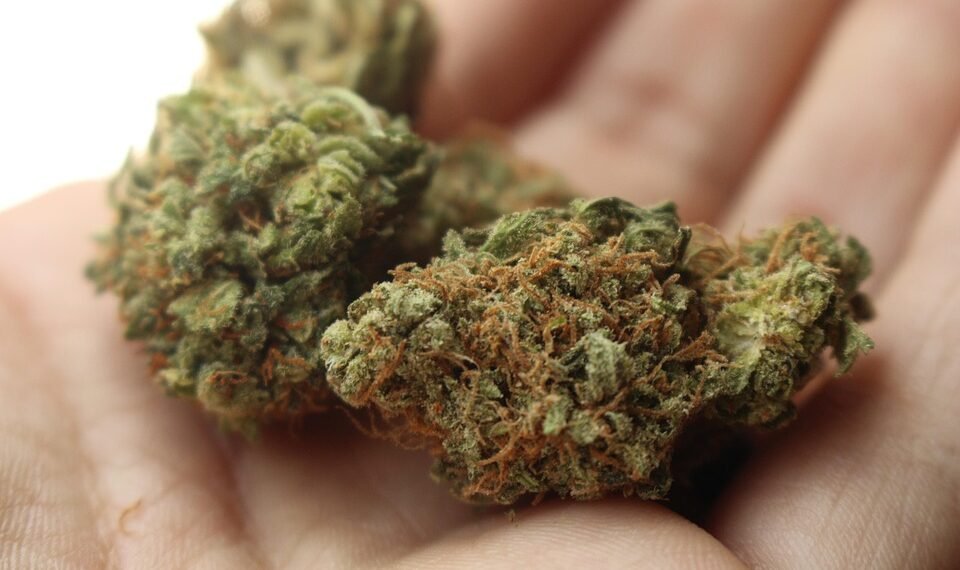The Healing Power of THC: A Guide to Exploring the Benefits of Cannabis Therapy
With the legalization of cannabis gaining momentum in many parts of the world, more people are turning to this plant for its therapeutic benefits. One of the key components of cannabis that has been garnering a lot of attention is THC, or tetrahydrocannabinol. THC is the psychoactive compound in cannabis that produces the « high » feeling often associated with marijuana use. However, THC also has a wide range of therapeutic properties that can be harnessed for various health conditions. In this guide, we will explore the healing power of THC and how it can be used as a form of cannabis therapy.
Understanding THC and its Effects
THC works by binding to specific receptors in the brain and body known as cannabinoid receptors. These receptors are part of the endocannabinoid system, which plays a crucial role in regulating various physiological processes such as mood, appetite, pain sensation, and memory. When THC binds to these receptors, it can produce a range of effects, including euphoria, relaxation, pain relief, and increased appetite.
THC is known for its psychoactive properties, but it also has a number of therapeutic benefits. Some of the potential health benefits of THC include:
- Pain relief: THC has been shown to be effective in reducing pain, especially in chronic conditions such as arthritis, fibromyalgia, and neuropathy.
- Anti-inflammatory properties: THC has anti-inflammatory effects that can help reduce inflammation in conditions such as arthritis, Crohn’s disease, and multiple sclerosis.
- Anti-nausea: THC can help alleviate nausea and vomiting, making it a useful treatment for cancer patients undergoing chemotherapy.
- Improved sleep: THC has sedative properties that can help improve sleep quality and reduce insomnia.
How to Use THC for Therapeutic Purposes
There are several ways to consume THC for its therapeutic benefits. Some of the most common methods include:
- Smoking: Smoking cannabis is one of the fastest ways to feel the effects of THC, as it is absorbed directly into the bloodstream through the lungs.
- Vaping: Vaping cannabis involves heating the plant material or concentrates to create a vapor that can be inhaled. This method is considered to be less harmful than smoking.
- Edibles: Edibles are food products that are infused with THC, such as gummies, chocolates, and baked goods. Edibles take longer to take effect but can produce longer-lasting effects.
- Tinctures: THC tinctures are liquid extracts of cannabis that are taken orally. They are absorbed through the mucous membranes in the mouth for fast-acting relief.
- Topicals: THC-infused topicals such as creams, lotions, and balms can be applied directly to the skin to target localized pain and inflammation.
It is important to start with a low dose of THC and gradually increase it until you find the optimal dosage for your needs. It is also essential to consult with a healthcare professional before using THC for therapeutic purposes, especially if you are taking other medications or have underlying health conditions.
Common Questions About THC Therapy
Is THC therapy legal?
The legality of THC therapy varies depending on your location. In some countries and states, cannabis and its derivatives are legal for medical and recreational use, while in others, it is still prohibited. It is essential to research the laws and regulations in your area before using THC for therapeutic purposes.
Are there any side effects of THC therapy?
While THC therapy can be beneficial for many people, it can also cause side effects in some individuals. Some of the common side effects of THC include dry mouth, red eyes, increased heart rate, impaired coordination, and memory issues. These side effects are usually mild and temporary, but if they persist or worsen, it is essential to consult with a healthcare provider.
Can THC therapy be addictive?
THC has the potential to be addictive, especially in individuals who have a history of substance abuse or mental health disorders. It is essential to use THC responsibly and under the guidance of a healthcare professional to minimize the risk of addiction.
Conclusion
THC therapy is a promising form of cannabis therapy that can offer relief for a wide range of health conditions. By understanding the healing power of THC and how it interacts with the endocannabinoid system, individuals can explore the benefits of cannabis therapy in a safe and effective manner. Whether you are looking for pain relief, anti-inflammatory properties, or improved sleep, THC may be a valuable addition to your wellness routine. Remember to start with a low dose, consult with a healthcare professional, and stay informed about the laws and regulations in your area to make the most of THC therapy.
Overall, the healing power of THC is a testament to the potential of cannabis as a natural remedy for various health conditions. With more research and education, THC therapy can continue to evolve as a safe and effective treatment option for those seeking alternative forms of healing.




















![The Mind-Blowing Effects of [Cannabis Strain]](https://cannabisdailyguide.com/wp-content/uploads/2025/10/tree-4138799_960_720-360x180.jpg)















































